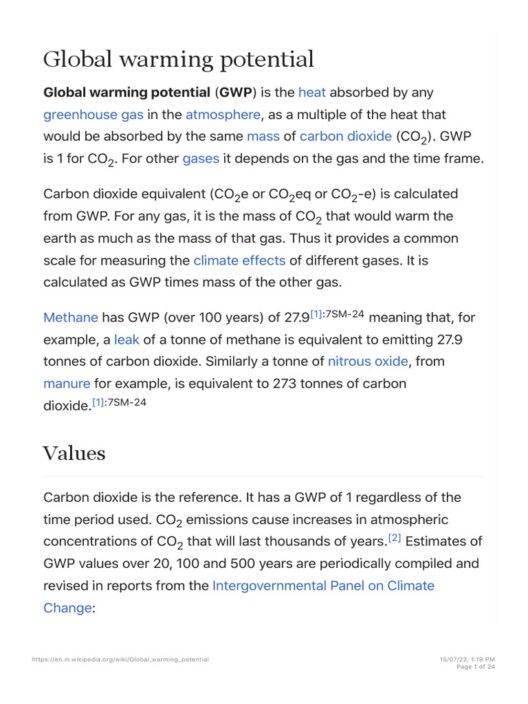As the dialogue surrounding climate change intensifies, an increasing number of individuals are awakening to the realization that their dietary choices play a pivotal role in impacting the planet’s health. A multitude of studies elucidates the intricate connections between our food consumption and greenhouse gas emissions, prompting the question: is your diet heating up the planet? This inquiry not only raises awareness about environmental issues but also beckons us to scrutinize our everyday choices and their broader implications.
At the crux of this debate lies the stark reality of how livestock farming, particularly cattle, contributes significantly to climate change. The production of red meat, especially beef, leads to elevated emissions of methane, a greenhouse gas with a warming potential many times greater than carbon dioxide. The process of enteric fermentation during digestion releases methane into the atmosphere, exacerbating the greenhouse effect. Moreover, the demand for land to rear livestock translates into deforestation and habitat destruction, releasing substantial carbon stocks previously sequestered in trees and soil.
Conversely, the cultivation of plant-based foods tends to yield fewer emissions overall. Grains, legumes, and vegetables generally require less energy and produce lower amounts of greenhouse gases throughout their growth cycle. Transitioning toward a predominantly plant-based diet not only lessens our carbon footprint but can also alleviate pressure on land and water resources. Thus, considering a reduction in meat consumption may serve as a pragmatic step for individuals concerned about their environmental impact.
It is essential to recognize that while dietary choices are integral, they are inherently enmeshed in a broader socio-economic context. The modern food system, characterized by its globalized nature, often prioritizes convenience and cost over sustainability. The omnipresence of processed foods laden with additives and preservatives has burgeoned, fostering a culture of consumption that often overlooks environmental ramifications. The intricate supply chains that underlie this system frequently lead to excessive carbon emissions associated with transportation and refrigeration. A critical component of addressing climate change lies in advocating for local and seasonal produce, which can foster a more sustainable consumption model.
In addition to individual dietary practices, it is crucial to spotlight the role of agricultural practices in this discourse. Industrial agriculture, with its reliance on chemical fertilizers and monoculture, significantly increases emissions. The chemical inputs not only release nitrous oxide, another potent greenhouse gas, but also degrade soil quality, rendering it less capable of sequestering carbon. In contrast, regenerative agricultural practices, such as crop rotation, organic farming, and agroforestry, hold substantial promise for mitigating climate change. These methods enhance biodiversity, nurture ecosystems, and contribute to carbon sequestration. Consumers can advocate for these practices by supporting local farmers and choosing organic and regenerative products when available.
The consumption of highly processed foods also raises pertinent questions regarding waste and sustainability. The packaging associated with these foods—often non-biodegradable—compounds this issue. Furthermore, the global food supply chain generates a significant amount of food waste, contributing to methane emissions when organic materials decompose in landfills. A proactive approach to waste reduction can be as simple as meal planning, reusing scraps, and composting organic waste. Each of these actions diminishes the environmental impact linked with food consumption.
Understanding food labels and their implications for environmental sustainability can empower consumers. Many labels indicate whether a product is sustainably sourced, organic, or free from certain harmful additives. However, the proliferation of these labels can sometimes lead to confusion. It is imperative to educate oneself about what these labels entail, as they can guide consumers toward environmentally friendly choices. Informed decisions facilitate a collective shift toward a more sustainable food system.
Cultural factors also undeniably influence dietary choices and perceptions surrounding food. Traditionally, certain cuisines relied heavily on plant-based ingredients, yet globalization has precipitated a rapid shift towards highly caloric and heavily processed diets. This phenomenon underscores the need for an inclusive dialogue that respects and incorporates traditional practices, highlighting how indigenous knowledge systems can offer wisdom on sustainable eating habits that have maintained ecological balance for centuries.
As we delve into the intersection of diet and climate change, it is crucial to acknowledge the cumulative impact of individual choices. While personal agency is essential, systemic change in agriculture policy, food distribution systems, and consumer awareness must accompany personal efforts for meaningful progress. A movement toward environmental sustainability transcends mere dietary choices; it encompasses a holistic approach to how societies produce, distribute, and consume food.
In conclusion, confronting the relationship between our diets and climate change unleashes a powerful dialogue about personal responsibility and agency. It compels us to re-examine not only what we eat but how those choices resonate on a global scale. Embracing a diet that prioritizes sustainability can lead to a healthier planet, with repercussions that extend far beyond the dinner table. By strategically reassessing our food systems and advocating for meaningful changes, we can forge a future where our dietary choices nourish not only our bodies but also our shared environment.






